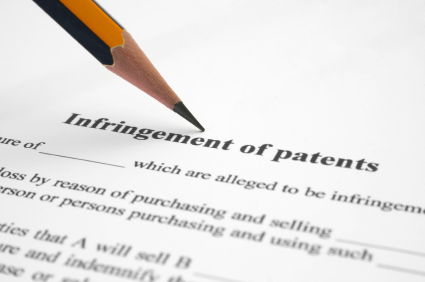It’s one of the least attractive aspects of the music business. It’s one of the things no one likes to talk about. But it’s part of the game, and you can’t ignore it.
Copyright infringement is big business in the US, and if you run afoul of someone else’s intellectual property, you could be in for some serious setbacks. Of course, if someone’s ripping you off, then you also need to know what to do to give them the setback!
Well, we can’t actually tell you everything about IP infringement in 600 words, but we can condense it down to two main pieces of information: copyrighting music is a good idea, and why always asking permission when using others’ work is a better idea.
Why Copyrighting Music Is Important
OK, if you know the basics of US copyright law, you probably know that you immediately receive a theoretical copyright to any work as soon as you publish it in any fashion. However, there are still real benefits to officially copyrighting music through the Copyright Office.
Basically, this plants your flag. If there is any dispute over who is the original creator of a song, the person with the copyright will win in most cases. It’s more reliable and more recognized by the courts than other methods of claiming ownership.
Further, and this is the big one: it allows you to sue for damages. If your song is stolen or used without your permission, and you aren’t registered, at best you could simply shut the distribution down. To receive any damages, you have to have a real copyright.
Another option for copyrighting music is going through the Creative Commons. A CC license is free (unlike a Copyright) and allows you a lot more leeway in what forms of reuse you allow or deny future artists… but they’re almost entirely untested in the courts. How well a CC license will hold up against legal claims of infringement remains to be seen.
Why Asking Permission Is More Important
In most cases, plagiarism is pretty self-explanatory. Don’t make money off someone else’s song or recording without giving them credit, getting permission, and\or sharing royalties as appropriate.
However, things get really tricky when it comes to sampling. Sampling is a big part of a lot of music genres, and it’s a huge legal gray area. Cases involving sampling are usually handled on a case-by-case basis, and more often than not, they end up with out-of-court settlements.
Generally speaking, you should always seek permission first when using a recognizable sample. It can prevent far more headaches later on. You could also consider giving the original artist co-composing credit, and simply paying royalties through ASCAP. If you’re using someone else’s work, it’s hard to find too many arguments for not giving them credit and reward for it.
Rerecording is another option. If you hear a drum beat you just must have, consider recreating it in a studio rather than using the original recording. While there can still be issues involving composition when you do this, it’s still far safer than using the original beat directly. Plenty of early acts, like The Sugarhill Gang, utilized small bands to rerecord samples to avoid these issues.
When Dealing With Copyrights, Play It Safe
No matter which way you’re coming at it, be smart and safe when dealing with copyrights. Protect your own work by copyrighting your music, and always avoid using others’ works without permission – even if it’s just a quick sample.













































Comments
No comment